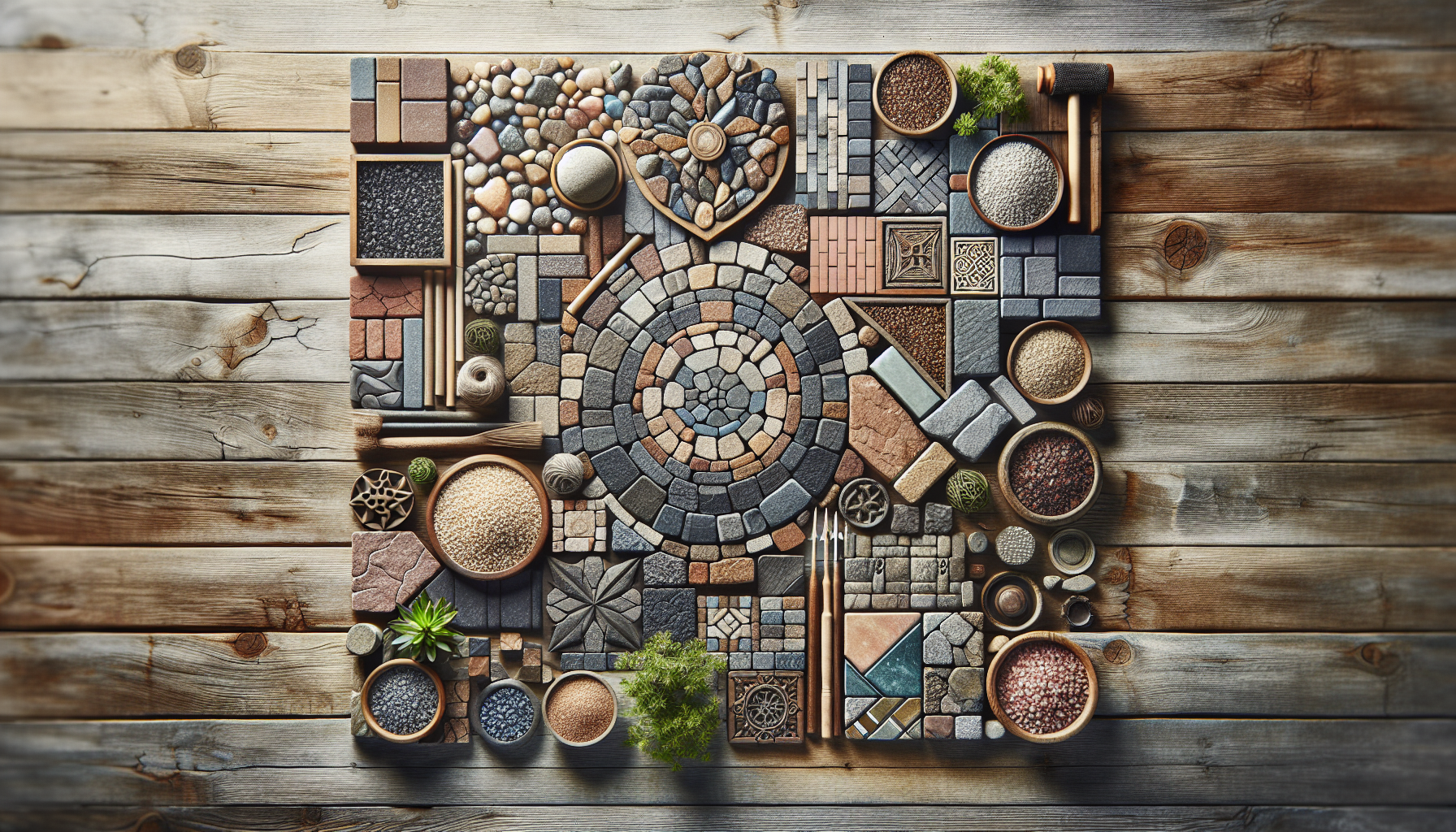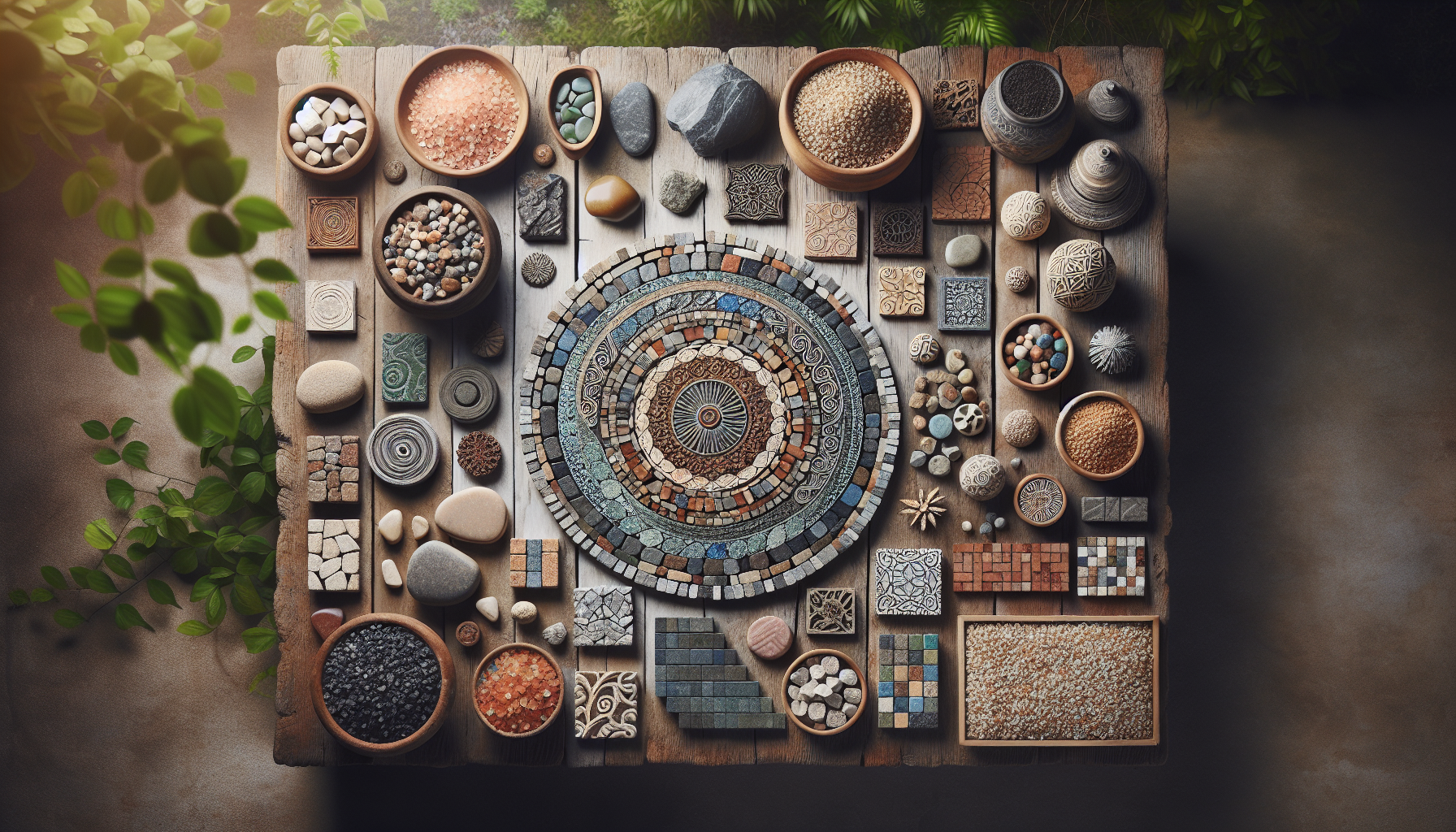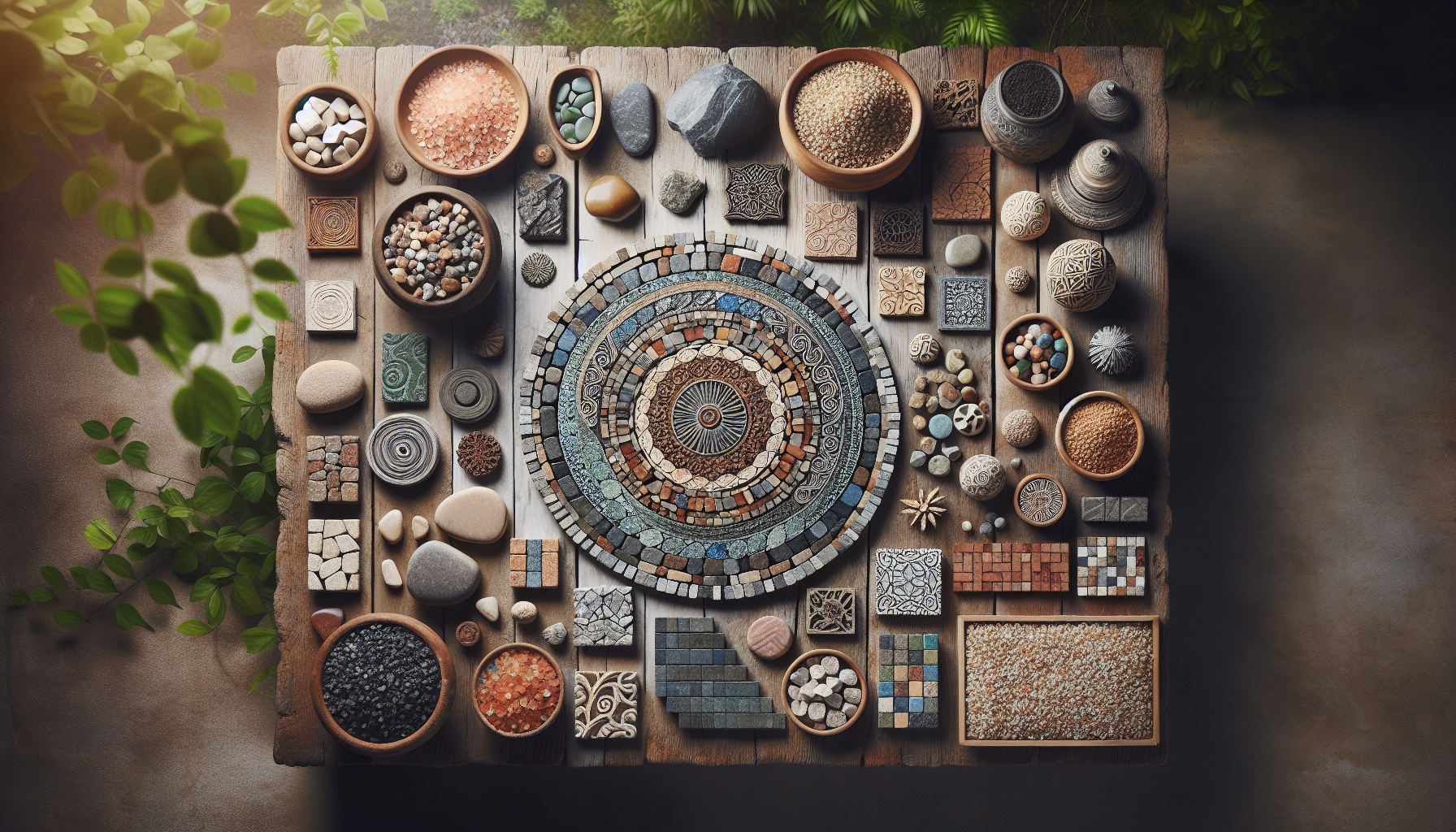Have you ever wondered what types of hardscape materials can enhance your outdoor space? Understanding these materials can transform your yard into a functional and aesthetically pleasing area. From patios to walkways, the right hardscape choices can elevate your property.

What is Hardscaping?
Hardscaping refers to the non-plant elements of landscaping. These materials provide structure and form to your outdoor spaces, creating pathways, walls, patios, and more. Unlike softscaping, which involves plants and soil, hardscaping uses durable materials to create lasting features in your landscape.
Benefits of Hardscaping
Utilizing various hardscape materials offers numerous advantages. Firstly, hardscaping adds a visual contrast to the greenery in your yard. It helps define spaces, enhances functionality, and can increase property value. Additionally, hardscaping reduces lawn maintenance by minimizing the areas that require regular care.
Types of Hardscape Materials
Knowing the different types of hardscape materials helps you decide what suits your home best. Here’s a breakdown of some common hardscape materials you can consider:
1. Pavers
Pavers are versatile and come in various shapes, sizes, and colors. They are often made from concrete, brick, or natural stone.
- Concrete Pavers: Durable and easy to install, they can mimic the look of stone or brick at a lower cost.
- Clay Pavers: These provide a more traditional look and are fired at high temperatures, making them very strong.
- Natural Stone Pavers: Each piece is unique, giving a natural aesthetic. Common types include flagstone, slate, and granite.
Using pavers for patios or walkways creates a welcoming atmosphere in your yard. Remember to consider the drainage when planning your installation.
2. Concrete
Concrete is a popular choice due to its flexibility and durability. It can be poured into numerous shapes and sizes, making it ideal for various applications.
- Stamped Concrete: This method imitates the appearance of natural stone or brick through stamping techniques.
- Exposed Aggregate: This surface showcases small stones embedded in concrete, offering a textured finish.
Concrete can serve as a patio or driveway, providing a solid surface for any outdoor activity.
3. Stone
Natural stone adds elegance and timelessness to your landscape. It’s perfect for creating features like retaining walls and outdoor kitchens.
- Granite: Known for its strength and resilience, it works well for countertops and seating areas.
- Limestone: This softer stone is easier to cut and shape, often used for patio stones and walls.
Using stone gives your landscape a unique touch, with each piece showcasing nature’s artistry.
4. Brick
Brick is a classic hardscape material that offers durability and a charming aesthetic. It’s great for pathways, patios, and borders.
- Standard Bricks: Rectangular and uniform, they can be laid in various patterns to create appealing designs.
- Pavers made from Brick: These are specifically designed for durability and ease of installation.
The natural red tones of bricks can warm up any outdoor space, making it inviting and cozy.
5. Gravel
Gravel provides a low-cost and easy-to-install surface for paths and driveways. It comes in numerous colors and sizes, allowing for customization.
- Crushed Stone: This type of gravel packs down well, making it suitable for driveways.
- Pea Gravel: Round and smooth, it’s perfect for decorative areas or walkways.
Consider gravel for its drainage properties, as it allows water to flow freely, reducing pooling in certain areas.
6. Sand
Sand can serve multiple purposes in hardscaping. You can use it as a base under pavers or as a filler in gaps between stones.
- Construction Sand: Ideal for leveling surfaces before laying pavers.
- Play Sand: Fine and soft, it’s great for kids’ play areas within your yard.
Using sand wisely can ensure that your hardscape features remain stable and well-supported over time.
7. Asphalt
Asphalt, primarily used for driveways, offers a cost-effective option with easy maintenance.
- Hot-Mix Asphalt: This is the most common type, providing a smooth finish for driveway surfaces.
- Cold-Mix Asphalt: Suitable for patching and small repairs, it can be applied without heating.
Consider asphalt for a functional driveway that stands the test of time.
8. Retaining Walls
Retaining walls can be constructed from various hardscape materials, adding depth and dimension to your property.
- Concrete Block: These are often used for their versatility and ability to hold soil back effectively.
- Natural Stone: Offers a beautiful aesthetic while providing strength to support elevation changes in your yard.
Building a retaining wall can help manage soil erosion while adding a striking feature to your outdoor design.
How to Choose the Right Hardscape Material
Selecting the right hardscape material depends on several factors:
Purpose
Consider what function you want your hardscape to serve. Do you need a durable surface for parking? Or perhaps a stylish patio for entertaining? Each material has strengths suited to specific needs.
Aesthetics
Think about how the material will look with your landscape. Earthy tones might blend well with gardens, while sleek concrete could match a modern home.
Durability
Evaluate how often you will use the space. High-traffic areas require more durable materials. Make sure the material you choose can withstand the weather elements in your area.
Budget
Costs vary significantly among different materials. Determine your budget beforehand, as some materials may require higher upfront costs but offer longer-term savings through durability.
Hardscape Maintenance
Understanding how to maintain hardscape materials can extend their lifespan. Here are some common tips:
Cleaning
Regular cleaning helps prevent stains or damage from dirt and debris. Use a broom or pressure washer for patios and driveways, but test pressure levels on delicate surfaces.
Sealing
Sealing can protect various hardscape materials from weather damage. Consider applying a sealant on porous surfaces like concrete or natural stone to maintain their appearance and durability.
Repairs
Promptly addressing cracks or chips in hardscape materials prevents further damage. Keep an eye on the surface condition and make repairs as needed.

Combining Hardscape Materials
Incorporating multiple types of hardscape materials can create unique designs. For example, combining pavers with gravel allows for a textured effect in pathways.
- Contrast: Mixing materials like stone and concrete can add visual interest.
- Functionality: Use different materials in strategic areas, such as paving stones for a walkway leading to gravel seating.
Planning Your Hardscape Design
Before you start your hardscape project, planning can save you time and money.
- Sketch Your Ideas: Draw a rough layout of your outdoor space including existing features. This will help you visualize the final outcome.
- Choose Materials: Refer back to the materials breakdown above and select those that fit your project goals.
- Consider Drainage: Planning for water runoff ensures your hardscaping holds up well over time.
- Assess Lighting: Consider how the addition of hardscaping will affect natural light and outdoor lighting in your space.
Conclusion
Understanding the different types of hardscape materials gives you the power to create beautiful, functional outdoor spaces. Each material has unique properties and benefits, making them suitable for different applications. Whether you opt for sturdy concrete, classic brick, or natural stone, your hardscaping choices will significantly impact your property’s look and functionality.
If you find yourself in need of professional assistance for hardscaping or any roofing services, consider reaching out to Xclusive Home Services. They are your one-stop solution for all needs related to home improvement.
Xclusive Home Services
- Address: 14505 N. Hayden Rd., Ste. 101, Scottsdale, AZ 85260
- Phone: (602) 341-5545
- Email: management@xclusivehomeservicesco.com
Founded in 2025, Xclusive Home Services is ready to help with everything from hardscaping to comprehensive roofing solutions. Take the step towards enhancing your outdoor space today!



